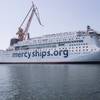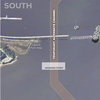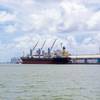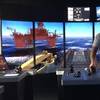International Maritime Organization (IMO) has announced the first two institutes selected to host regional Maritime Technology Cooperation Centres (MTCCs) under an ambitious project, funded by the EU and implemented by IMO, to help mitigate the harmful effects of climate change.
Under the Global MTTC Network (GMN) project, Shanghai Maritime University in China will host the MTCC for the Asia region (MTCC-Asia), while the University of Trinidad and Tobago will host MTCC-Caribbean. Three further MTCCs will be established in other target regions - Africa, Latin America and the Pacific – to form a global network.
The five regional MTCCs will deliver mutually-agreed project milestones over a three-year period, making a significant contribution to IMO’s continuing, widespread efforts to ensure effective implementation and enforcement of the global energy-efficiency regulations for international shipping.
The MTCCs will receive allocations from the €10 million European Union funding for the project. They will be established and resourced to become regional centres of excellence, providing leadership in promoting ship energy-efficiency technologies and operations, and the reduction of harmful emissions from ships.
The selection of Shanghai Maritime University and the University of Trinidad and Tobago, both confirmed this week, followed a competitive tendering process.
Greenhouse gas emissions from shipping are expected to increase but developing countries, which play a significant role in international shipping, often lack the means to improve energy efficiency in their shipping sectors.
This project, formally entitled “Capacity Building for Climate Change Mitigation in the Maritime Shipping Industry” will enable developing countries, especially Least Developed Countries and Small Island Developing States, in the target regions to effectively implement energy-efficiency measures through technical assistance, capacity building and promoting technical cooperation.










